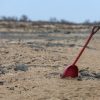 The Scottish government has tightened pest control. 'devastating blow' to Scottish sporting estates and farms after plans were unveiled to ban them from using snares to control predators such as foxes.
The Scottish government has tightened pest control. 'devastating blow' to Scottish sporting estates and farms after plans were unveiled to ban them from using snares to control predators such as foxes.
Landowners warned that the ban would harm livestock and be «devastating» to their conservation efforts for vulnerable species such as black grouse, capercaillie, curlew, golden plover, gray partridge, lapwing and oystercatcher.
Scottish Land & Estates (SLE) said it would be «impossible» to prevent further «loss of biodiversity» after the «widespread decline» of their populations since the 1960s.
This is especially in the wake of the recent suppression of hunting with SNP dogs in Scotland it became more difficult to throw foxes out of hiding into waiting guns.
Broadcaster Chris Packham called the plan «great news», saying: «These torture devices should have been banned a long time ago and I'm glad the Scottish government has finally recognized the traps for unacceptably cruel traps, which they are.»
He urged the UK government to follow suit in England after Wales became the first home nation to vote to ban traps in June.
But the SLE and the Scottish Jaegers pleaded with SNP ministers to allow an exemption so they could use «new humane restraints» which they said allowed «non-targets» like deer and badgers to get free.
They also raised concerns about plans to give the Scottish Society for the Prevention of Cruelty to Animals (SSPCA) broad investigative powers.
Power to enter farms
This included giving SSPCA inspectors additional powers to enter any farm or estate. to search for evidence of alleged crimes against wildlife, such as the killing of birds of prey.
SNP ministers have unveiled the plans despite the Scottish Police having previously opposed the move, warning that giving the animal welfare charity such power could jeopardize the impartiality of the investigation.
The trap is a loop of wire, usually attached to a post or tree. acts as an anchor that is usually set up to catch predators such as foxes or rabbits.
Although SNP ministers had previously tightened rules regarding their use, they had previously acknowledged that their installation was a «legitimate activity». for pest control.
The Scottish government consultation proposing the ban acknowledged that «predator control is sometimes necessary» but stated that there was «ample evidence that the use of snares could lead to unacceptable levels of suffering for wild animals.
Arguing that the traps were «indiscriminate», he warned that «they pose an unacceptable risk to non-target species, including other wild and domestic animals such as cats.»
The consultation will run for six weeks until October 3, after which the trap ban is expected to be added as an amendment to the Wildlife Management and Muirburn (Scotland) Bill.
Gillian Martin, SNP Environment Minister, said: «Trap traps cause unnecessary suffering to animals and these proposals are part of our ongoing efforts to ensure sustainable and humane wildlife management.»
«Currently, only a small a number of farmers and land surveyors use trap traps. More efficient and humane forms of wildlife management are available and we will continue to support the industry to use these methods.”
But Jake Swindells, director of the Scottish Countryside Alliance, said his comments were «alarming how dangerously inaccurate» their comments were, and said they showed a «total misunderstanding» of how the trap works.
«Already legislated ”,
He said. : «Given that the Scottish government has already passed legislation banning other practical and effective alternative forms of pest control, this proposal leaves those working in rural areas even more unprepared.»
“The consequences of this could be devastating for some of our rarest species, including the curlew and capercaillie. Well-designed snares, when properly used, are a humane and effective form of fox control.”
Last month it was reported that the number of endangered capercaillie increased for the first time in eight years, but there are still only 542 people.
Ross Ewing, SLE Moorland Director, said: “It is deeply regrettable that, at a critical juncture in efforts to maintain biodiversity in rural Scotland, the Scottish Government is moving towards a ban on traps, thereby eliminating another tool to manage predator pressure on vulnerable species.”
He urged SNP ministers to make an exception for humane cable restraints, which differ from conventional traps in that they include a breakaway function, a warning to include them in the ban would be “ This was supported by the Scottish Rangers Association, which backed a ban on traditional snares but said the new devices were a «step». -exchange for welfare.
























































Свежие комментарии